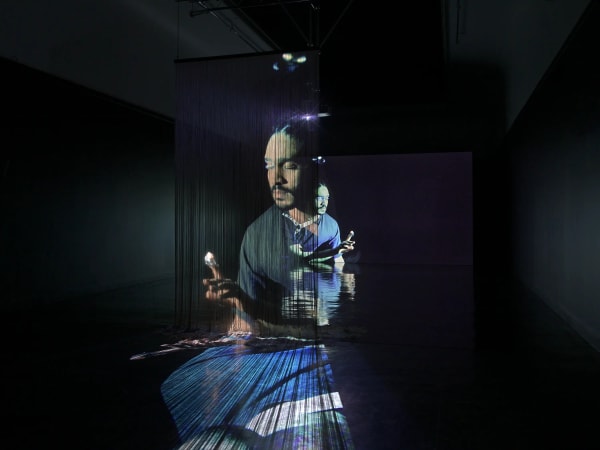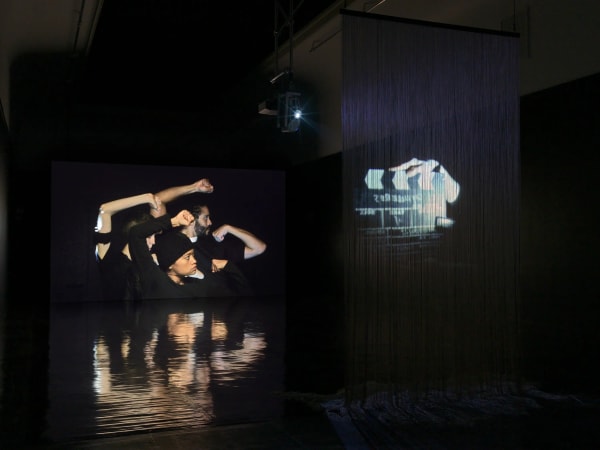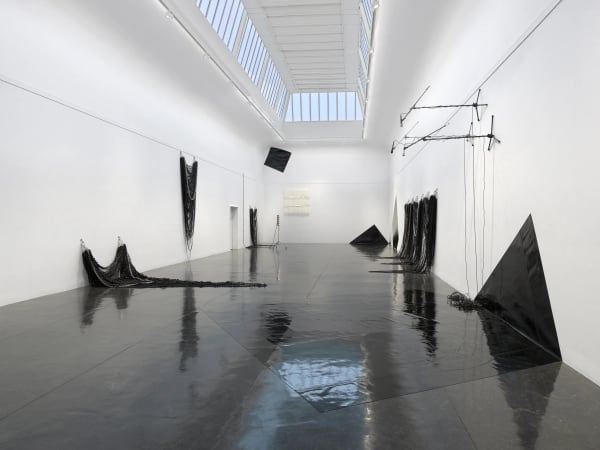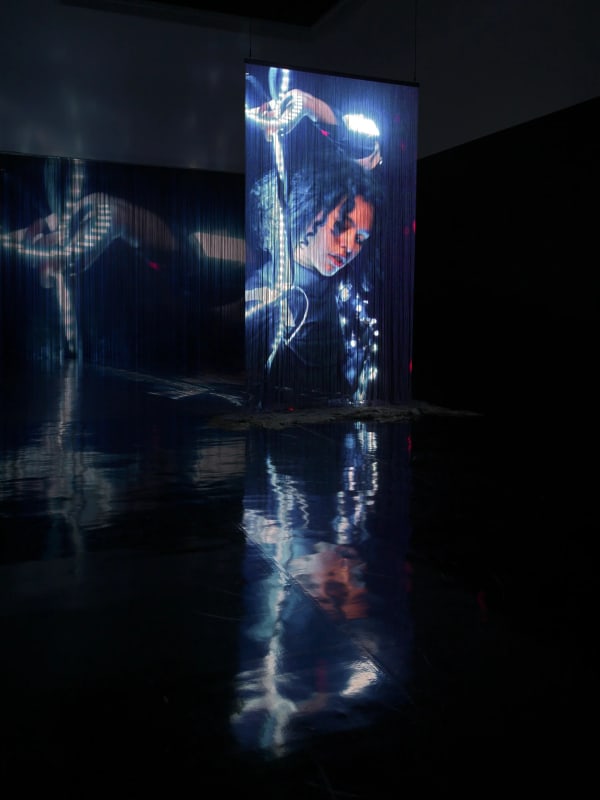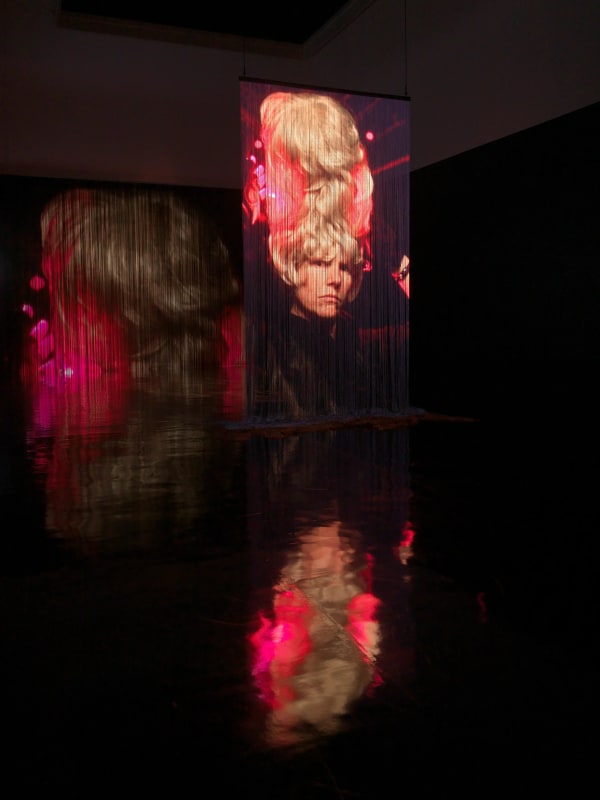With five choreographers and performers, Pauline Boudry and Renate Lorenz have developed the two-channel film installation Les Gayrillères, co-produced by Kunstnernes Hus. The film's choreography shows a series of steps for a gay guerrilla, building on the unpredictable power of bodies moving in concert, experimenting with forms of togetherness. The camera films a continuous dance in a 360° movement where the interplay between darkness and light, visibility and opacity, is central. The right to be opaque, to control one’s own degrees of visibility, is at the core of the work.
The work adopts its title from Monique Wittig's seminal, feminist novel Les Guérillères (1969) in which a tribe of warrior women wage an attack on patriarchal society. The Gayrillères' pleasures are indivisible from the sadness of political backlash: the endless violence in public spaces, and the withdrawal of rights by authoritative governments.
The exhibition also includes a series of sculptures that choreograph the relation between on-screen and off-screen, sounding and listening, between the delayed character of the filmed performance and the liveness of visitors moving through the exhibition space. Hair, chains, microphones, and dance floor seem to have directly stepped down from the screen, having formerly existed in the diegetic universe as a wig, a prop, or part of a costume. Now they follow their own score and take refuge in their new appearance as abstracted artworks, presented in the white cube.
By focusing on the fragile moment of entering a stage and claiming space – a moment of visibility as well as vulnerability – the exhibition engages questions of pleasure, power and political change.
Les Gayrillères is co-produced by Kunstnernes Hus, Arsenic Lausanne and DeSingel Antwerp. It was exhibited at Whitechapel Gallery in London in 2022, and is currently on view at the 35th São Paulo Art Biennal in Brasil. The film installation is the third in a film trilogy that includes Moving Backwards (2019) and (No) Time (2020). The films have been shown in several countries, and Moving Backwards was presented in The Swiss Pavilion at the Venice Biennale in 2019.

